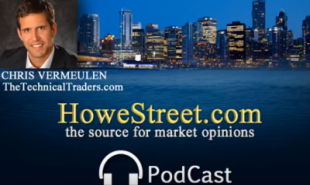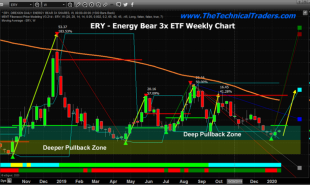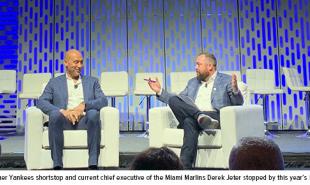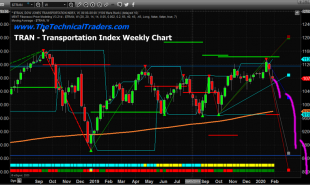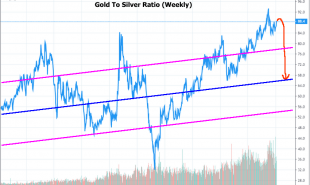
CEO fallout.
Yesterday America's business community spoke with one voice and said very clearly to U.S. President Donald Trump: You know what, Nazis, no thanks. Here you can read accounts from Bloomberg News, the New York Times and the Wall Street Journal of how the Strategic and Policy Forum and the Manufacturing Jobs Initiative, two groups of business leaders that had been set up to provide President Trump with appealing public-relations opportunities, fell apart after Trump refused to pick sides between Nazi and anti-Nazi protesters in Virginia. The short version is that there were some conference calls, and the members agreed they were fed up, and Steve Schwarzman called the White House to say that his strategy council was disbanding, and Trump preempted the news by firing the councils on Twitter before they could quit. (They quit anyway, for good measure.)
Why did they quit? There is an obvious materialist-realist answer, one involving brand risk and millennial recruiting and shareholder value. From Reuters:
"I don't think these are personal decisions," said Blain Rethmeier, a Republican strategist who worked on the Trump transition and consults with companies in California. "I think these are made through the eyes of what's in the best interest of the company, and the brand risks of what it means to be involved with the council became too much."
From Bloomberg:
“Within companies, there’s a high level of alert on the public outrage,” said Ben Wikler, the Washington director of MoveOn.org, a progressive advocacy group. “The cost to corporate brands rises each day that they continue to align themselves with Trump.”
From the Times:
“There is continuing pressure on C.E.O.s from customers, employees, shareholders and board members to take a position against what’s going on and separate themselves from president Trump’s councils,” said Bill George, the former chief executive of the medical device maker Medtronic and a board member of Goldman Sachs. “These executives cannot live with customers thinking they are in cahoots with someone who supports white supremacists or neo-Nazis.”
"Executives have faced tough questions from workers and young recruits over their relationship with the White House," notes the Journal. There is a hashtag. "It seems that boycotts and refusal to deal are headed back into the public limelight," speculates my Bloomberg View colleague Tyler Cowen.
But there's another possible explanation. "Privately, many chief executives say they are fuming, outraged by the president," reported Andrew Ross Sorkin on Monday. Jamie Dimon was "furious and wanted off the council." Larry Fink told employees that he "concluded that I could no longer in good conscience participate in the forum." Merck & Co. Chief Executive Officer Kenneth Frazier left the manufacturing council on Monday as a "matter of personal conscience." Maybe they just ... meant that? I said yesterday that "it seems odd to me to denounce Nazism out of fealty to shareholder value. You can just denounce Nazism because you're not a Nazi!" I realize that it is somewhat unfashionable to believe that executives of big public companies could act out of personal conscience rather than strict profit maximization, but I think it is worth entertaining that possibility here.
One deep theme of this column is that "greed" is overrated as a driver of bad behavior. People who want to make a lot of money are fine, as people go; it's the people who want power that you should worry about. A hedge fund manager once quoted Samuel Johnson to me: "There are few ways in which a man can be more innocently employed than in getting money." You can see this play out in the CEO resignations. Are the CEOs of big companies the conscience of America, the leading moral lights of our time? No, of course not. They are just people, and rich ambitious people at that. But they are not comfortable with Nazis and white supremacists, and so they abandoned an administration that equivocated on Nazis and white supremacists. It looks impressive by contrast with the political leaders who won't abandon that administration. But of course they won't: The pursuit of power requires more compromises, and is more corrupting, than the pursuit of money.
Libor.
Yesterday Pacific Investment Management Co. put out a note explaining how difficult, controversial and costly it will be to replace Libor as the global generic interest rate and the basis for trillions of dollars of derivatives contracts. I am a former derivatives structurer, and as I read this list, I couldn't help salivating a little:
The Newport Beach, California-based money manager said the following risks arise from regulators forcing the switch before markets are prepared:
- A “mass scramble" to migrate positions, boosting investor costs via bid-ask charges to hedge the basis
- Libor-linked transactions or derivatives not transitioned could become less liquid or risk valuation changes
- Libor-linked contracts may not have “fallback language” and may cause hedge or accounting issues for retail and small institution end-users
- Transactions by less-sophisticated investors may have “tax, trust and other considerations that limit their adaptability” which can lead to “contractual frustration”
My lord, that list, I am sorry, but it is so beautiful. Think how much money banks will make off of this. Think of the trillions of dollars of derivatives that will need to be restructured, for a reasonable restructuring fee. Think of the trillions of dollars of stuff that will change hands, for a reasonable bid/ask spread. Think of the tax and accounting issues that will be raised, and that the banks will offer to solve with new trades, at reasonable markups.
Banks make money when clients transact. Weird complicated changes in markets cause clients to transact. When banks understand those changes better than the clients do -- because they are at the center of the market, and are repeat players, and have a seat at the table in deciding how the changes will be made, and have every incentive to understand the changes -- then they make a lot of money. When the changes affect trillions of dollars of transactions, then they will make just so much money.
The irony is too obvious: The banks created Libor, they manipulated it, they paid billions of dollars of fines for that manipulation, the manipulation effectively destroyed Libor, now all sorts of Libor trades will have to be replaced, and the banks will have just a grand old time doing that replacement.
Snapchat insider trading!
Actually the Securities and Exchange Commission and federal prosecutors don't say which "encrypted, self-destructing smartphone messaging application" Daniel Rivas, Roberto Rodriguez and Rodolfo Sablon allegedly used to exchange inside information, but let's just use "Snapchat" as the generic category name. "In the midst of the scheme, to avoid detection, Rivas, Sablon, and Rodriguez largely stopped communicating by phone calls and text messages and, in mid-2016, cut off phone communications," moving their insider trading entirely to Snapchat (or whatever) after that point. Great ... idea ... I guess? It didn't work, and yesterday the SEC and prosecutors charged them and four other people with insider trading.
Rivas was an information technology worker at Bank of America Corp. who worked on the software that kept a list of secret upcoming deals, with fields like the target and acquirer names, the deal price, and the expected announcement date. It was a tempting list, especially if you were the IT guy who maintained it rather than a banker actually doing the deals. Rivas allegedly succumbed to temptation some 30 times between 2014 and 2017, and the SEC has a helpful flowchart with 11 individuals in four layers who were involved in the trading.
I would all in all give this crew a collective, like, B+ for tradecraft? Rivas allegedly used Snapchat (or whatever) with his friends Rodriguez and Sablon. With his girlfriend's father James Moodhe, he allegedly used lower-tech but similarly secure methods. From the SEC complaint:
To avoid leaving a trail of their communications, Rivas and Moodhe did not communicate through electronic means such as phone calls, text messages, or emails. Instead, Rivas tipped Moodhe through other methods. For instance, Rivas provided handwritten notes to Moodhe’s daughter, who was Rivas’s girlfriend. These handwritten notes generally included: (1) the ticker symbol for the acquiring company; (2) the ticker symbol for the Target Company; (3) the expected Deal price; (4) the expected announcement date; and (5) the Bank’s role in the Deal.
Romantic! Meanwhile Moodhe was allegedly passing on the tips to his friend Michael Siva. ("Their friendship centered on their mutual interest in trading securities.") They also did decent work, using "code phrases" when discussing deals on the phone, meeting in person for more detailed discussions, gathering third-party research about the merger targets "to create paper trails that would serve as non-fraudulent justifications for the illegal trading," and trying not to be too explicit about where the information came from:
In conversations with Siva, Moodhe referred to Rivas as his imaginary friend or as his friend. Siva requested more detailed information about the identity of Moodhe’s source, but Moodhe told him not to ask questions.
On the other hand, they lose points for this:
In exchange for passing Rivas’s tips to Siva, Moodhe received trading advice from Siva, who was a sophisticated investment professional. Among other advice, Siva helped Moodhe to maximize the profit that he generated from trading on the tips by advising Moodhe about which options to trade in the Target Companies.
Not that sophisticated! They violated the Second Law of Insider Trading, which is, if you are going to insider trade, don't do it by buying short-dated out-of-the-money call options on undisclosed merger targets. A really sophisticated investment professional -- one who reads Money Stuff, but never takes it as legal advice -- would know that.
For those following insider trading law, an interesting aspect of this case is that it is not clear that Rivas, the tipster at the source of all this insider trading, received any "personal benefit" from his tips. There are hints that he did: that he got the benefit of helping out close friends (and his girlfriend's father), for instance, or that "if Rodriguez’s and Sablon’s trading on the basis of Rivas’s tips proved profitable, Rodriguez and Sablon would start an investment fund with the proceeds and Rivas would join the fund." But mostly the SEC and prosecutors don't seem too worried about the "personal benefit" requirement of insider trading law -- because they don't have to be. Of those 30 deals, "at least eleven" were tender offers, and insider trading on a tender offer is illegal even if the tipper giving you the inside information didn't breach any fiduciary duties and didn't receive any personal benefit. So this case basically gets to skip the last few years of insider-trading developments: In tender-offer insider trading, there's no need to worry about the nuances of the personal relationships involved, or about who knew what about who got which personal benefits.
For those following my semi-serious Laws of Insider Trading, this case is interesting for other reasons. Except for those out-of-the-money call options, these guys don't seem to have done too much dumb obvious stuff. And yet here they are. "Data analysis allowed the SEC’s enforcement staff to uncover the illicit trading despite the traders’ alleged use of shell companies, code words, and an encrypted, self-destructing messaging application to evade detection," brags the SEC, justifiably, though it doesn't give away its methods. We talk a lot around here about the Second Law, because people who are caught insider trading were so predictably trading short-dated out-of-the-money call options. But the First Law of Insider Trading is "just don't do it," and it's worth re-emphasizing. Even if you're smart and sneaky about it, the SEC is getting pretty good at catching it.
Is private equity the new banking?
I dunno, what do you think of this claim, from Andrew Tuch of Washington University in St. Louis School of Law?
I argue, first, that private equity firms now mirror the former investment banks in fundamental respects. They engage in a diversified mix of securities and asset management activities. They adopt the ethos of entrepreneurialism, innovation, and aggressive risk taking that was the hallmark of independent investment banking. They act as “shadow banks” because of the bank-like functions they perform, despite falling outside the traditional banking system. Many have gone public. The employer of choice for aspiring financial professionals, these firms have become the new titans of finance.
"Entrepreneurialism, innovation, and aggressive risk taking," but not so much on the funding side: Tuch suggests "that private equity firms, as currently structured, are more financially stable and pose less systemic risk to the global economy" than the independent investment banks used to.
People are worried that people aren't worried enough.
The decline in volatility in the stock market has created a lot of opportunities for people to worry in the press about complacency, but fewer opportunities for high-frequency trading firms:
Revenue at HFT firms from U.S. equities trading is projected to be just $850 million this year, compared to $7.2 billion in revenue from U.S. stocks trading in 2009, Tabb Group says.
Another HFT firm, RGM Advisors LLC, has had enough:
RGM was among the innovators, but its business deteriorated amid the recent lack of market volatility. The firm made around $800 million in trading profits over its lifetime, but this year it has been losing money, prompting its owners to accelerate efforts to find a buyer, a person close to the firm said. RGM has also cut staff to around 70 employees, down from more than 100 a few years ago.
This week, RGM agreed to sell the firm for what one person close to the deal said was less than $10 million.
I suppose there is a potential for complacency magnification here: If the low volatility forces all the market makers to close up shop, then there'll be no one left to make markets when volatility returns, and price swings will be wilder than ever.
People are worried about bond market liquidity.
Here are a blog post and related paper by Meni Abudy and Avi Wohl claiming that "corporate bonds should, in fact, be more liquid than stocks, because their prices are less volatile, and there is less private information about them." Usually people argue that of course bonds are less liquid than stocks, because big companies each have a lot of bonds with different terms and features, whereas they only have one stock each. But Abudy and Wohl think that bonds would naturally be more liquid than stocks, but aren't, because they trade over-the-counter through dealers rather than on a central limit order book exchange like stocks:
In our recent paper, “Corporate Bond Trading on a Limit Order Book Exchange“, we investigate the trading of corporate bonds on an open LOB market, the Tel Aviv Stock Exchange (TASE), where both stocks and corporate bonds are traded by an LOB mechanism.
The Israeli corporate bond market is much smaller than its American counterpart. ... Thus, one would expect the Israeli market to be illiquid. We found, though, that it is in fact lively, with many transactions per bond-day, very little off-exchange trading, and low trading costs of about 0.078 percent of the price. Those costs are much lower than in the U.S., especially for retail size transactions. We also compared the liquidity of stocks with that of corporate bonds issued by the same firm and found that, for a typical firm, bond spreads are smaller than stock spreads. The fact that the stocks are less liquid than bonds (and less liquid than U.S. stocks) supports the notion that the high liquidity of corporate bonds in the LOB is due to the trading mechanism and not to any particular characteristic of the Israeli market.
This seems like good news for bond market liquidity, as more trading is moving to all-to-all electronic trading platforms as dealers retreat.
Blockchain blockchain blockchain.
In yesterday's Money Stuff I wrote a joke commercial for Blockstream's space blockchain thing, and I ... think ... they ... are using it? I guess that is the power of decentralization and open-sourcing for you.
Things happen.
China’s Pyramid-Scheme Crackdown Sends Herbalife Shares Falling. Elliott Moves to Block Berkshire’s Oncor Bid; Buffett Stands Pat. Renaissance Technologies took some new money in its Medallion fund in January. Index Funds Are A Proof Of Concept For Market Socialism. China’s Online Giants Back $12 Billion Deal to Shake Up State Firm. Africa’s Richest Man to Invest Up to $50 Billion in U.S., Europe. Nutella alert after gang makes off with 20 tonnes of chocolate spread. 'It still fits': Diamond ring missing since 2004 turns up on garden carrot. To Come Up with a Good Idea, Start by Imagining the Worst Idea Possible.
If you'd like to get Money Stuff in handy email form, right in your inbox, please subscribe at this link. Thanks!
Read more by MarketSlant Editor




